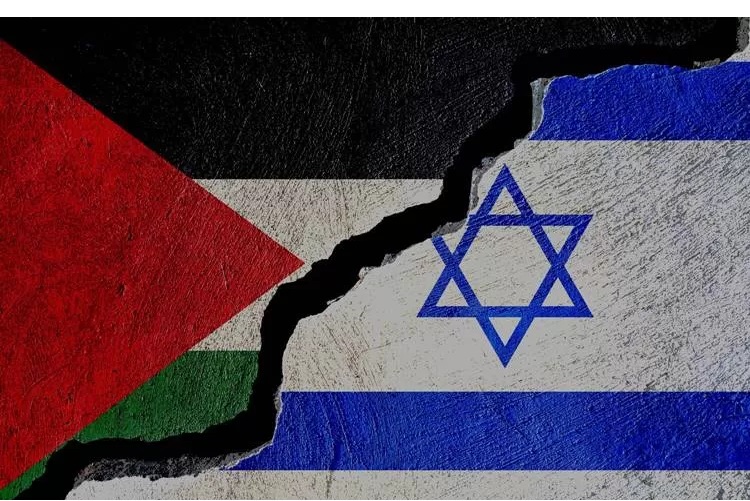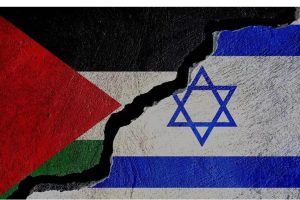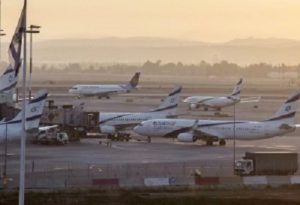By Imaam Yakhsyallah Mansur
Allah Subhanahu wa Ta’ala says:
وَنَجَّيْنٰهُ وَلُوْطًا اِلَى الْاَرْضِ الَّتِيْ بٰرَكْنَا فِيْهَا لِلْعٰلَمِيْنَ ٧١ (الانبياء [٢١]: ٧١)
“And We delivered Abraham and Lot to the land which We had blessed for all mankind.” (Qur’an, Al-Anbiya [21]: 71)
Also Read: Enchanted by K-Dramas, Dragged into Slander: Time for Muslims to Rise!
Imam Ibn Kathir Rahimahullah explains that the phrase الْاَرْضِ الَّتِيْ بٰرَكْنَا فِيْهَا لِلْعٰلَمِيْنَ refers to the land of Sham—which includes Palestine and its surroundings—known for its fertility and as the home of many prophets and messengers.
Meanwhile, Sayyid Qutb in Fi Zilal al-Qur’an interprets this “blessed land” not only as fertile and beautiful but as blessed with divine values and guidance. It is the center of revelation and faith for humanity.
The Indonesian scholar Prof. Quraish Shihab, in Tafsir Al-Misbah, explains that this blessing is continuous, covering both spiritual and material aspects. He identifies the blessed land in the verse as Palestine and its surrounding areas.
The phrase “لِلْعَالَمِينَ” indicates that the benefits of this blessed land are universal—transcending tribes, nations, and eras. God’s blessings are for all humanity, not limited to one people or generation.
Also Read: Creating Opportunity and Avoiding Misery; Lesson Learn on Waste Recycling Issue
Historians agree that, based on archaeological evidence, before Prophet Abraham Alaihi Salam arrived in Palestine, the land was already inhabited by the Canaanites, who are the ancestors of today’s Palestinian people.
However, after Prophet Abraham settled there, the blessed land (Palestine) became a divine gift for all mankind—a place of life, justice, and noble human values.
Allah Subhanahu wa Ta’ala granted this blessed land as a mercy and trust so that humankind bears the moral and social responsibility to use its resources for the good of all.
The universal message of this verse also emphasizes the duty to protect the land from oppression and corruption of any kind.
Also Read: Between the Treaty of Hudaybiyyah and Ceasefire in Gaza
The Cultural Advancement of the Canaanite Civilization
The Canaanites were the original inhabitants of Palestine, living there thousands of years before Prophet Abraham Alaihi Salam. They are among the oldest peoples of the Levant region (Palestine, Lebanon, Syria, and parts of Jordan).
Archaeological findings show that the Canaanites had an organized and advanced society as early as the 3rd millennium BCE. One of the strongest proofs is the city of Jericho, considered by archaeologists as one of the world’s oldest cities.
British archaeologist Kathleen Kenyon (1950s) found that Jericho had been inhabited around 9000 BCE, featuring defensive walls, stone towers, and advanced agriculture.
Also Read: Peace Cannot Be Achieved Without a Palestinian State
The Canaanites excelled in farming and trade, cultivating wheat, barley, olives, and grapes, and raising livestock. Palestine’s strategic location between Mesopotamia and Egypt made it a hub of ancient international trade.
Cities like Hazor, Megiddo, and Lachish reveal complex political and administrative structures. Archaeologist Amihai Mazar concluded that the Canaanites had effective local governance long before the rise of later kingdoms.
Their language and culture heavily influenced the ancient Near East. The Canaanite language became the basis for Phoenician and Hebrew, both branches of the West Semitic family.
Records such as the Amarna Letters from Egypt (14th century BCE) document Canaanite rulers and diplomacy with the Pharaohs, showing their integration into the broader world.
Also Read: Facing the Wall: Netanyahu and Ambitions Built on Blood
Historians William F. Albright and John Bright described Canaanite civilization as the “bridge between East and West,” blending Egyptian, Mesopotamian, and local Palestinian elements.
Artifacts and monumental architecture found in sites like Beit She’an and Gezer further confirm that the Canaanites were a developed, inclusive society.
Thus, the Canaanites were not merely figures of ancient text but a true indigenous civilization that left a lasting legacy on this blessed land.
The Arrival of Zionism and the Balfour Declaration
Also Read: Taaruf of the Construction World: Lessons from the Collapse of Al Khoziny’s Prayer Hall
As noted by leading Palestinian historian Prof. Rashid Khalidi in The Hundred Years’ War on Palestine, “This conflict is not between two peoples with equal claims to the land, but between a settler-colonial movement and the indigenous population that has lived there for millennia.”
Modern Zionism emerged in the late 19th century as a colonial project aimed at establishing a “national home for the Jewish people” in Palestine.
In 1917, British Foreign Minister Arthur James Balfour issued the Balfour Declaration, pledging support for a Jewish homeland in Palestine—a land already inhabited by Arab Palestinians.
Under British mandate, thousands of European Jewish immigrants arrived, seizing Palestinian land. In 1948, Zionist Israel unilaterally declared statehood and expelled over 750,000 Palestinians during the Nakba (Great Catastrophe).
Also Read: Fear of Being Left Behind: When FOMO Becomes a Lifestyle for Gen Z
Zionist presence in Palestine is therefore not a continuation of history, but a modern colonial enterprise backed by Western powers.
The claim that Palestine was “promised by God” to the Jewish people is a theological distortion used for political ends. No moral or historical justification exists for dispossession and violence in God’s name.
Dr. Nahum Goldmann, a key Zionist diplomat, once stated that the Jewish choice of Palestine was not based on Torah teachings or resources like Dead Sea minerals or oil reserves. The real reason was its strategic location, at the crossroads of Europe, Asia, and Africa—making it a military and geopolitical center of global power.
Palestinian scholar Edward Said called the “two-state solution” a deceptive political illusion, arguing that as long as Israel’s colonial apartheid structure stands, justice will never be achieved. True peace requires dismantling occupation and apartheid.
Also Read: Peace in Gaza, Between Hope and Reality
Similarly, former UN Special Rapporteur Richard A. Falk described Israel’s occupation as modern settler colonialism that violates international law.
The Two-State Solution Is Not a Path to Justice
Many international forums propose the two-state solution, creating independent states of Israel and Palestine living peacefully side by side. Yet this does not address the root cause of the conflict.
The two-state formula legitimizes colonial occupation, recognizing injustice as lawful, while Palestinians are confined to a fraction of their ancestral land.
Also Read: Four Prominent Palestinian Detainees Set for Release: Who Are They?
Peace built on oppression cannot last. Real peace must restore rights to their rightful owners, the Palestinian people.
Palestine is not merely a political or territorial issue; it is a matter of justice and humanity. In geopolitics, there is a saying: “Peace in Palestine, Peace in the World.”
The Palestinians deserve to live freely on their own land, just as every nation has the right to independence. Justice demands rejecting occupation, restoring ownership, and acknowledging true history.
The State of Palestine must not remain a symbolic map or puppet administration controlled by foreign powers. It must have full sovereignty over its land, resources, and people.
Also Read: Children in Gaza and Future Generations Threatened by Genetic Damage
May truth and justice soon prevail for the people of Palestine, heirs to the land of the prophets, the blessed land, and may this lead all humanity toward genuine peace.
Peace in Palestine, Peace in the World.
وَاللَّهُ أَعْلَمُ بِالصَّوَابِ
Mi’raj News Agency (MINA)































 Mina Indonesia
Mina Indonesia Mina Arabic
Mina Arabic